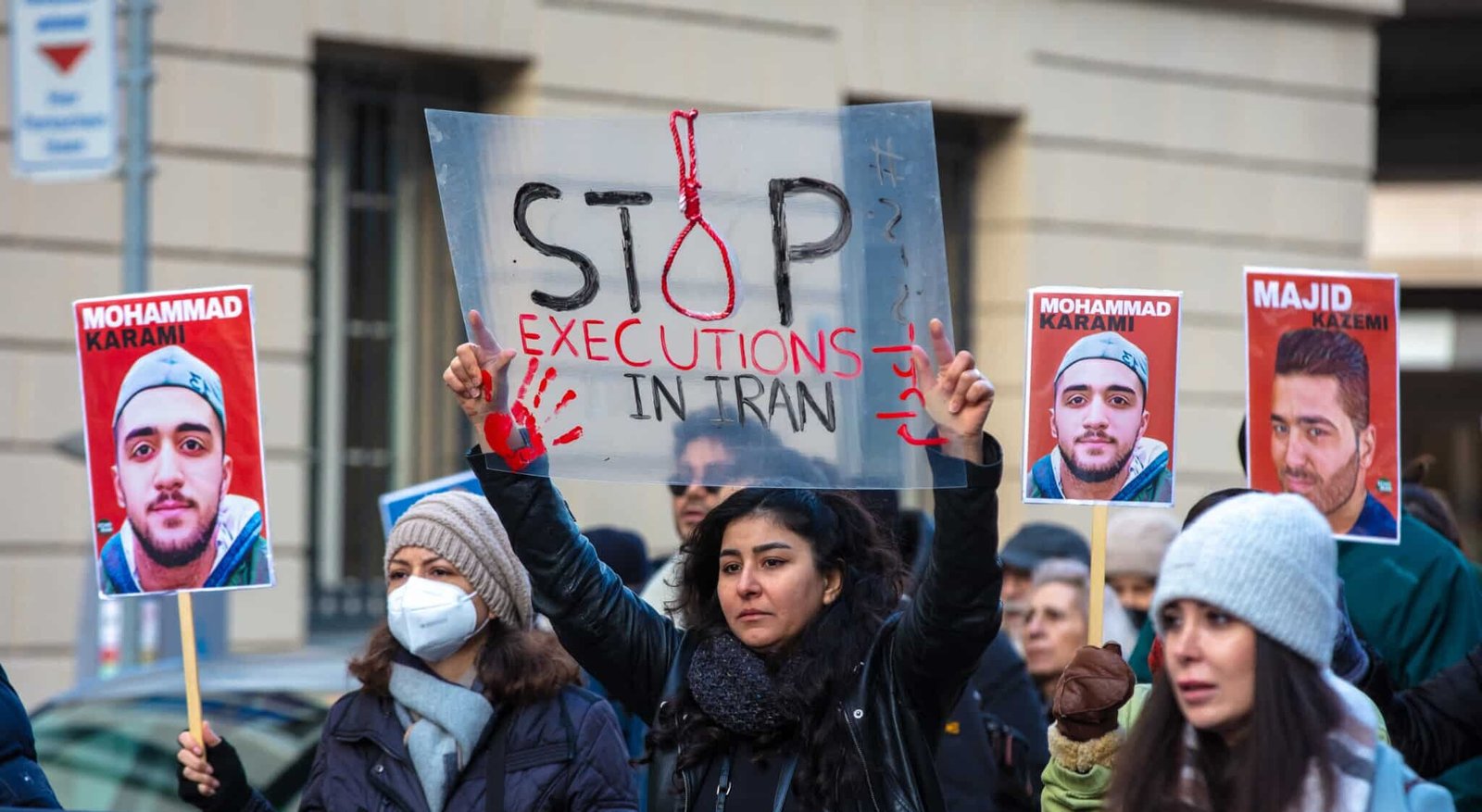Latest Developments
Iran committed crimes against humanity and genocide when it executed thousands of dissidents in 1981-1982 and 1988, a new United Nations report released on July 22 declared. Authored by Javaid Rehman, the UN’s outgoing special rapporteur for human rights in Iran, the report states that the executions constitute “the worst and the most egregious human rights abuses of our living memory whereby high-ranking state officials connived, conspired and actively engaged to plan, order and commit crimes against humanity and genocide against the nationals of their own state.” The publication calls on UN member states “to make use of universal jurisdiction to investigate, issue arrest warrants against, and prosecute” the offenders.
The report constitutes the final one written by Rehman in his capacity as special rapporteur, whose term ends on July 31. Mai Sato, a Japanese lawyer, assumes the role on August 1.
Expert Analysis
“The UN’s report confirms what we already know: The Islamic Republic has committed crimes against humanity and genocide ever since its founding in 1979. But it seems many in the West have forgotten this history and continue to regard Tehran as a viable negotiating partner. Washington and other Western capitals should read this report and recognize the truth: Only regime change can bring meaningful reform to Iran.” — Tzvi Kahn, FDD Research Fellow and Senior Editor
“The report follows Sweden’s exchange of Hamid Nouri, an Iranian official imprisoned and convicted in Sweden for his role in the execution of thousands of political prisoners in the 1980s, for a Swedish diplomat who was arrested while traveling to Iran. This highlights the inconsistency in the Europeans’ stance on human rights and why their virtue signaling should not be taken seriously.” — Saeed Ghasseminejad, FDD Senior Iran and Financial Economics Advisor
The 1981-1982 Atrocities
In the years following the 1979 Islamic Revolution, the supreme leader, Ayatollah Ruhollah Khomeini, worked to transform Iran into a theocracy rooted in his interpretation of Shia Islam. To implement his vision, Khomeini established Revolutionary Courts throughout the country that imposed draconian sentences on dissidents they perceived as un-Islamic, often after brief trials devoid of due process.
From “June 1981 to March 1982,” Rehman wrote in his report, “thousands of dissidents, including hundreds of children, were arbitrarily detained and subjected to systematic patterns of enforced disappearance, torture and summary, arbitrary and extrajudicial executions on religiously motivated and vaguely defined charges of moharebeh (‘waging war against God’), efsad-e fel-arz (‘spreading corruption on Earth’) and irtidad (‘apostacy’).”
The 1988 Executions
In the summer of 1988, Iran executed thousands of political prisoners after three-member panels, known as Death Commissions, asked them questions aimed at gauging their loyalty to the Islamic Revolution. According to Rehman’s report, questions included: “Are you willing to walk through an active minefield to assist the army of the Islamic Republic?” “Are you willing to participate in firing squads?” “Are you a Muslim?” “Do you pray?” The wrong answer usually meant death. Iran’s President Ebrahim Raisi, who died in a helicopter crash last May, served on one of these Death Commissions.
Iran’s ongoing refusal to take accountability for the atrocity marks an ongoing human rights abuse, Rehman stated. “Since the early 1980s, the Iranian government has, systematically, demolished individual and mass graves across the country believed to contain the remains of the executed dissidents,” the report stated. “The authorities continue to conceal or erase data that could serve as potential evidence to avoid legal accountability.
Recommendations
Rehman’s report stated that he “seeks the establishment of an international accountability mechanism” that would investigate the full range of Iran’s crimes, including “the patterns of sexual and gender-based violence perpetrated by the authorities against women and girls, including cases of reported rape.” Among other steps, he wrote, Tehran must also “disclose fully and publicly the truth” regarding the killings in the 1980s; issue an apology and reparations; stop damaging graves; and provide the special rapporteur with access to Iran.
“Meet Iran’s New Boss, Same as the Old Boss,” by Reuel Marc Gerecht and Ray Takeyh
“Executions Surge in Iran as Protests Persist,” FDD Flash Brief
“Mapping Protests in Iran,” by Mark Dubowitz
Subscribe to FDD Flash Briefs
